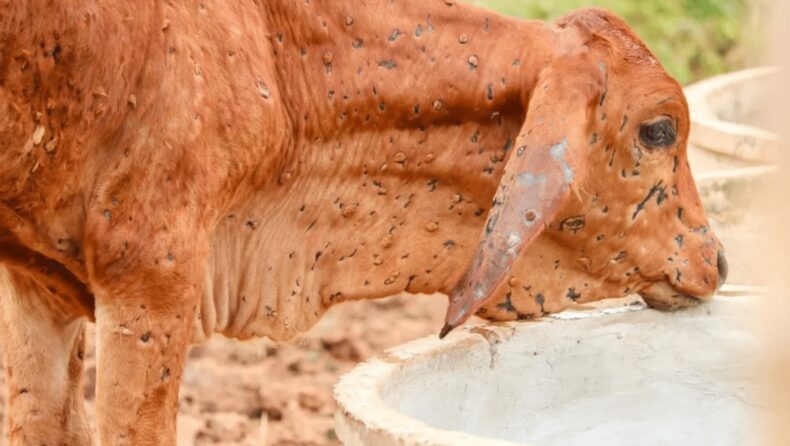Is an infectious disease amongst cows or bulls, visible symptoms are Fever, reduced milk production, loss of appetite, and in some cases permanent infertility amongst cows.
Lumpy skin disease (LSD) killed more than 50,000 cows and the rest of them who were affected are still suffering from this deadly disease. The disease is caused by a virus in the family of Poxviridae (source: indiatoday.in). The origin of this disease was first found in Africa and then as it started spreading it affected the cattle of Asia and the Middle east part of the world the first case was discovered in India, Gujarat’s kutch region.
Cows are found with heavy lumps all over their bodies, the milk production slowed down, and heavy nasal discretion some even faced miscarriages. The number of cattle being affected by this disease increased in numbers as this disease is not actually curable. Also, it is tough to always let the cow be protected from being attacked.
This disease is most likely to be transmitted through vectors to cattle like flies and mosquitos. A cow can not reach all her body parts just through her mosquitos and flies. In most cases, cows and bulls are not even aware of any mosquitos. They are safe until the vector with the infection attacks them through direct contact or through blood feeding.
This Lumpy Skin disease is known as a Zoonotic, Virus or an infection that doesn’t spread from animals to humans ( source: indianexpress.com). According to Prof. J B Kathariya, assistant professor at the college of veterinary science and animal husbandry in Junagadh “ Milk produced by an infected animal will be fit for human consumption after boiling or pasteurization as these processes can kill the viruses if any in the milk”.
If the diseases aren’t affecting humans, we can do the least for the cattle who produce the most important part of our diet, that is milk, by taking care of them, the preventative measures include controlling frequent movements made by the cattle and most importantly putting infected cows in different rooms than animals who are not affected. If one has a farm, cows or bulls should be placed separately it might prevent the carry forward of the virus.
Read More:https://tdznkwjt9mxt6p1p8657.cleaver.live/












